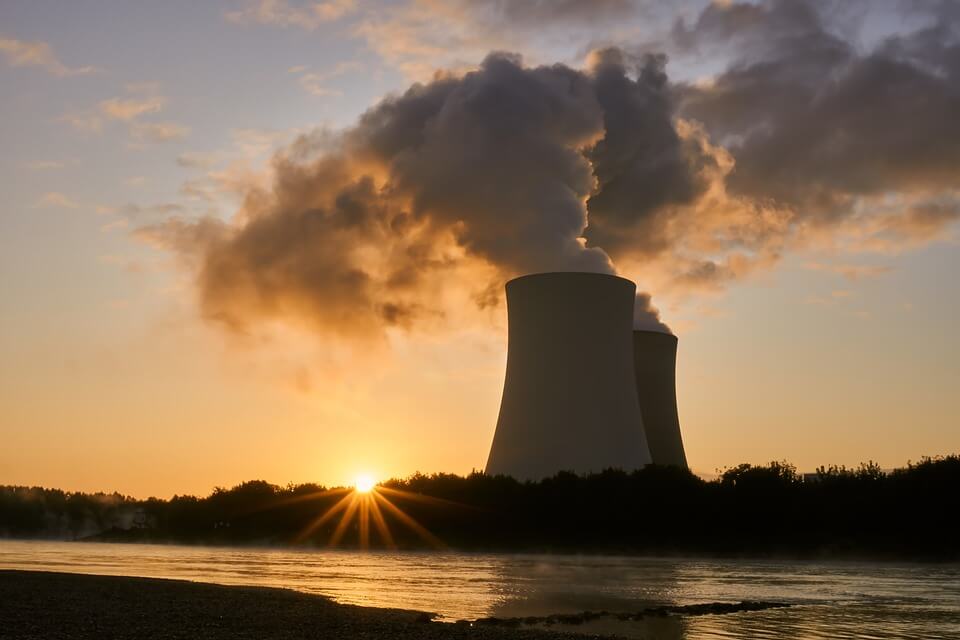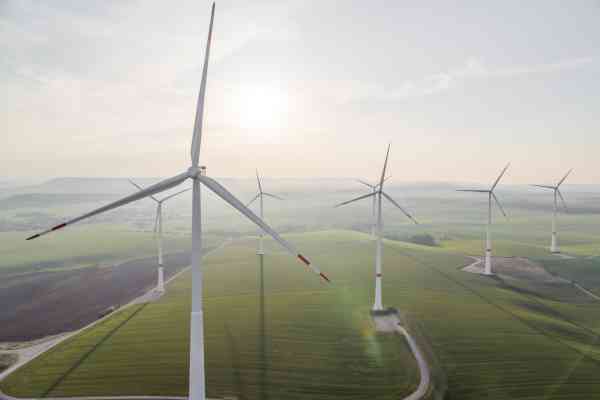April 20th, 2023 | 08:05 CEST
Nuclear Power - No Thanks! E.ON, GoviEx Uranium, BASF - Questionable energy transition made in Berlin
Renewable energies are in focus! All well and good - Germany is repositioning itself. The focus is to be on hydropower, wind and solar energy. But these energy sources have little baseload capacity because hydroelectric power plants use "cheap" night electricity to pump water uphill, and reliable wind is probably only available offshore and not in the middle of Saxony. That brings us to the sun: On average, in our latitudes, it shines for about 146 hours a month, but in Alicante, it is 349 hours. Of course, large rooftop systems pay off for well-located households and one's e-mobile, but we cannot get a nationwide basic supply going with them. In the supply crisis, Berlin is relying on coal and gas power generation for now, but the much-touted climate neutrality is likely to be postponed to the next millennium. What should investors now keep an eye on?
time to read: 4 minutes
|
Author:
André Will-Laudien
ISIN:
E.ON SE NA O.N. | DE000ENAG999 , GOVIEX URANIUM INC A | CA3837981057 , BASF SE NA O.N. | DE000BASF111
Table of contents:
Author
André Will-Laudien
Born in Munich, he first studied economics and graduated in business administration at the Ludwig-Maximilians-University in 1995. As he was involved with the stock market at a very early stage, he now has more than 30 years of experience in the capital markets.
Tag cloud
Shares cloud
E.ON - Increase in basic tariff immediately after nuclear shutdown
The timing could hardly have been better. Just 48 hours after the German government issued the "shutdown order", German citizens are receiving sharp price adjustments for electricity supply. At E.ON, the increases amount to an average of about 42% nationwide. The Company justifies the measures with a delayed adjustment because it had to stock up on the market at very high prices last year. Although the price of electricity on the exchanges is about 30% cheaper again, this advantage is only available to new customers who terminate their old contract. According to calculations by the comparison portal Verivox, this means that a three-person household in NRW would have to pay about EUR 2,125 for an average annual consumption of 4,000-kilowatt hours of electricity as of June. That is how the free market economy works.
What annoys the electricity customer makes the E.ON shareholder happy. For here, the figures have continued to improve in the last quarters, and since October, the share price has consequently risen by around 60%. That brings the 5-year high of about EUR 12.50 within reach. On May 17, the annual general meeting will be held with a proposed dividend of 53 cents, which means that investors will receive a yield of about 5.2%. The only thing left for the bruised households to do to ease the pain is to quickly terminate the contract or buy E.ON shares.

GoviEx Uranium - Best cards for the future demand-pull
Currently, 47 nuclear reactors in the Chinese pipeline are scheduled to come on stream within the next eight to ten years. In a global comparison, this puts Beijing at the top of the international planning list, followed by Russia and India. The fact that Germany is taking its reactors off the grid in parallel is due to the political environment because, in this country, green ideologies rule over ecological and economic facts.
The fact is that the 439 nuclear reactors spread over 32 countries will continue to need a stable supply of uranium in the future, even if the conventional supply routes from the East are severely impaired by the Russia-Ukraine conflict. After bottoming out to below USD 25 per pound of U308, the price has moved back to USD 50. 57 million pounds, or about 32% of the total annual demand, was not met by worldwide uranium production in 2020. By 2025, a total deficit of 200 million pounds is expected. So, where will the 40-50 million pounds per annum come from?"
A new location is being planned by the Canadian company GoviEx Uranium. The property is within reach of Global Atomic's and Areva's prospecting grounds in Niger, Africa. The project, called Madaouela, is currently in focus and will be developed as soon as possible. At the same time, GoviEx holds other uranium claims in Zambia and a multi-metal deposit in Mali. The explorer's target areas include the world's largest uranium resources, totalling 130.1 million pounds of U3O8 (measured and indicated) and 89.3 million pounds of U3O8 (inferred), with further exploration potential on all projects. The Canadians already have all mining permits in place. They are looking to get up and running quickly in 2025 once project financing is in place, with initial discussions underway with major investors. The GXU share is currently trading at CAD 0.21 or EUR 0.15. The rally could start at any time with a rising uranium price or further geopolitical upheavals. Stay tuned.
BASF - Further investments in Asia fuel the imagination
In just one week, on April 27, the BASF annual general meeting will be held in Ludwigshafen. It is a festival every year because the chemical giant shines with dividend stability, and this time, it is paying a whopping 6.7% return of EUR 3.40 to shareholders. Ahead of this event, the stock is skyrocketing, having gained EUR 5 in just one month.
On the news side, Q1 data could be better, with sales down 13.4% to EUR 19.99 billion. This was significantly below analysts' estimates, mainly due to lower volumes due to the economic situation. EBIT before special items dropped by 31.5% to only EUR 1.93 billion and was thus even about EUR 900 million below the value of the same quarter last year. Here, however, the experts were even more pessimistic, with a consensus expectation of EUR 1.59 billion. The Agricultural Solutions segment performed exceptionally well, but Chemicals, Materials and Surface Technologies were also convincing. Industrial Solutions and Nutrition & Care missed expectations slightly.
The BASF share price was unimpressed by these figures, as good news came from Indonesia at the same time. On the sidelines of the Hannover Messe, a contract was signed to invest USD 2.6 billion in an ecosystem for EV batteries on Java. The construction process will start with French partner Eranet by the end of 2023, and earlier in the year, BASF reported the groundbreaking for another EUR 10 billion investment in China. Investors seem to like the non-European investments and have recently added BASF to their portfolios. The technical upward trend is fully intact above the EUR 44 line.
Important technology products will likely be produced abroad in the long run, as Germany is moving up the list of input costs worldwide. Eco-taxes, high wage settlements, and the highest energy prices on the planet are squeezing profits. E.ON and GoviEx Uranium are beneficiaries of this trend, and BASF stocks are also not expensive, with a 2023 P/E ratio of 11.
Conflict of interest
Pursuant to §85 of the German Securities Trading Act (WpHG), we point out that Apaton Finance GmbH as well as partners, authors or employees of Apaton Finance GmbH (hereinafter referred to as "Relevant Persons") currently hold or hold shares or other financial instruments of the aforementioned companies and speculate on their price developments. In this respect, they intend to sell or acquire shares or other financial instruments of the companies (hereinafter each referred to as a "Transaction"). Transactions may thereby influence the respective price of the shares or other financial instruments of the Company.
In this respect, there is a concrete conflict of interest in the reporting on the companies.
In addition, Apaton Finance GmbH is active in the context of the preparation and publication of the reporting in paid contractual relationships.
For this reason, there is also a concrete conflict of interest.
The above information on existing conflicts of interest applies to all types and forms of publication used by Apaton Finance GmbH for publications on companies.
Risk notice
Apaton Finance GmbH offers editors, agencies and companies the opportunity to publish commentaries, interviews, summaries, news and the like on news.financial. These contents are exclusively for the information of the readers and do not represent any call to action or recommendations, neither explicitly nor implicitly they are to be understood as an assurance of possible price developments. The contents do not replace individual expert investment advice and do not constitute an offer to sell the discussed share(s) or other financial instruments, nor an invitation to buy or sell such.
The content is expressly not a financial analysis, but a journalistic or advertising text. Readers or users who make investment decisions or carry out transactions on the basis of the information provided here do so entirely at their own risk. No contractual relationship is established between Apaton Finance GmbH and its readers or the users of its offers, as our information only refers to the company and not to the investment decision of the reader or user.
The acquisition of financial instruments involves high risks, which can lead to the total loss of the invested capital. The information published by Apaton Finance GmbH and its authors is based on careful research. Nevertheless, no liability is assumed for financial losses or a content-related guarantee for the topicality, correctness, appropriateness and completeness of the content provided here. Please also note our Terms of use.




